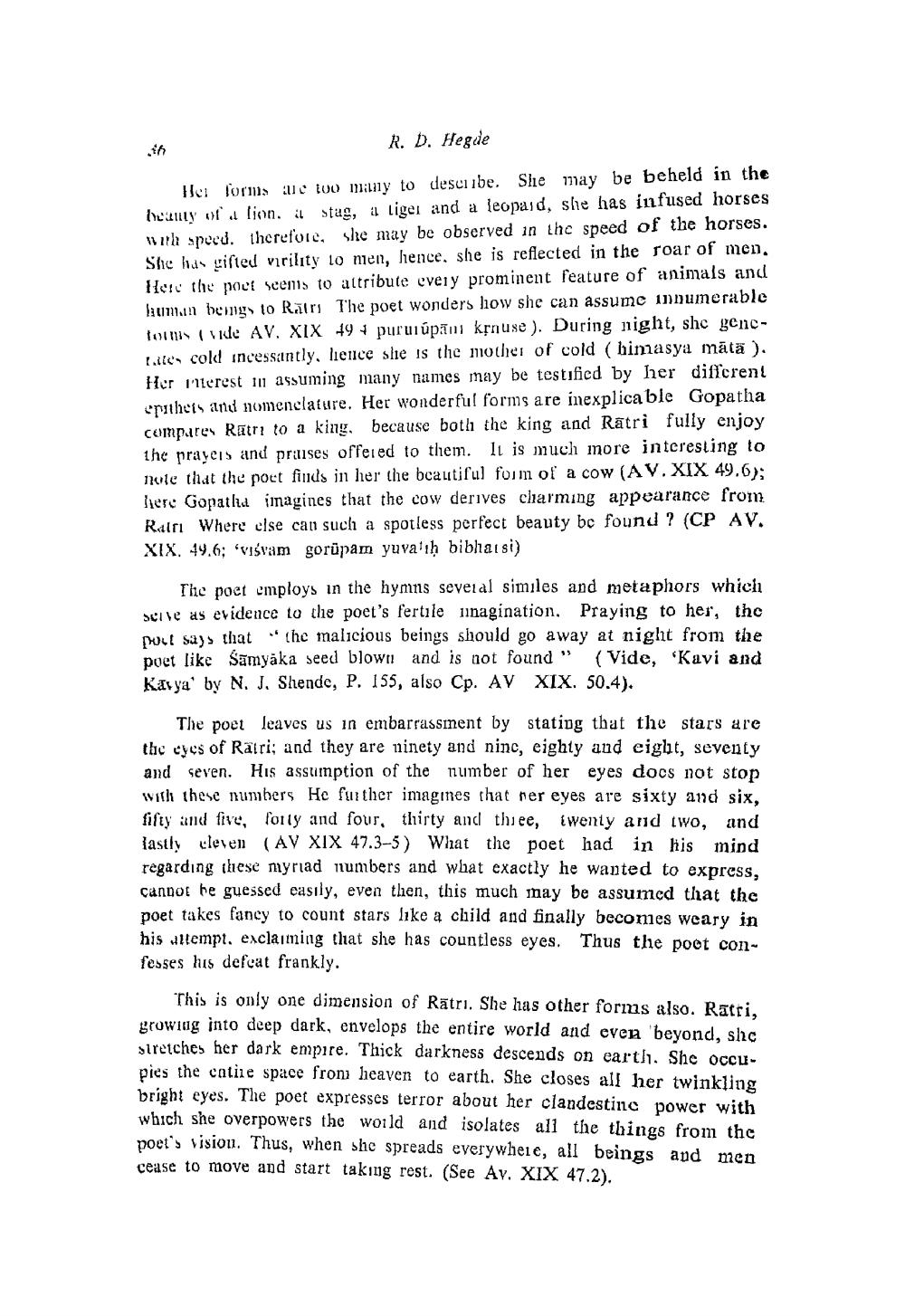________________
R. D. Hegde
th
Hei forms ac tvo muy to descube. She may be beheld in the beauty of lion. it stag, a tiger and a leopard, she has infused horses with speed. therefore, she may be observed in the speed of the horses. She has gifted virility to men, hence, she is reflected in the roar of men. Here the poet seems to attribute every prominent feature of animals and haum. beng, to Rātri The poet wonders liow she can assume innumerable toins de AV. XIX 49 + puruiúpām kşnuse ). During night, she geneLitos cold incessantly, lience she is the mother of cold (bimasya mātā ). Her l'lterest 11 assuming many names may be testified by her different srithes and nomenclature. Her wonderful forms are inexplicable Gopatha compares Ratri to a king, because both the king and Rātri fully enjoy the prayers and praises offered to them. It is much more interesting to note that the poet finds in her the beautiful form of a cow (AV. XIX 49.6); Here Gopatlid imagines that the cow derives cliarming appearance from Ralli Where else can such a spotless perfect beauty be found ? (CP AV. XIX. 49.6; *všvam gorüpam yuva ih bibhaisi)
The poet employs in the hymns several similes and metaphors which sive as evidence to the poet's fertile inagination. Praying to her, the Dout says that the malicious beings should go away at night from the poet like Samyaka seed blown and is not found " (Vide, "Kavi and Kavya by N. J. Shende, P. 155, also Cp. AV XIX. 50.4).
The poet leaves us in embarrassment by stating that the stars are the oyes of Ratri; and they are ninety and ninc, eighty and eight, seventy and seven. His assumption of the number of her eyes docs not stop with these numbers He further imagines that mer eyes are sixty and six, fifty and five, fonty and four, thirty and thiee, wenty and two, and fasthy cleven (AV XIX 47.3-5) What the poet had in his mind regarding these myriad numbers and what exactly he wanted to express, cannot he guessed easily, even then, this much may be assumed that the poet takes faney to count stars like a child and finally becomes weary in his attempt, exclaiming that she has countless eyes. Thus the poot confesses his defcat frankly.
This is only one dimension of Rātri. She has other forms also. Ratri, growing into deep dark, envelops the entire world and even beyond, she stretches her dark empire. Thick darkness descends on earth. She occupies the cotine space fronı heaven to earth. She closes all her twinkling bright eyes. The poet expresses terror about her clandestine power with which she overpowers the world and isolates all the things from the poet's vision. Thus, when she spreads everywhere, all beings apd men cease to move and start taking rest. (See Av. XIX 47.2).




